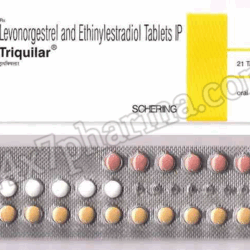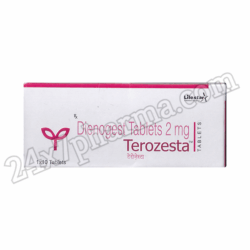Contraception
Showing 1–16 of 46 resultsSorted by latest
Dienofem 2mg Tablet 10’S
Original price was: $28.$24Current price is: $24.OVRAL G Tablet 20’s
Original price was: $15.$12Current price is: $12.Dinofirst 2mg Tablet 14’s
Original price was: $26.$22Current price is: $22.OCSurge 0.03 mg/3 mg Tablet 21s
Original price was: $24.$20Current price is: $20.Sevista 60mg Tablet 15’S
Original price was: $18.$14Current price is: $14.Yamini LS Tablet 24’S
Original price was: $21.$18Current price is: $18.Uvazest 2mg Tablet 10’S
Original price was: $21.$17Current price is: $17.Sevista 30mg Tablet 15’S
Original price was: $15.$12Current price is: $12.Terozesta 2mg Tablet 10’S
Original price was: $28.$23Current price is: $23.Ovuloc LD Tablet 21’S
Original price was: $10.$8Current price is: $8.Any type of birth control is considered contraception. There are several methods of contraception available, and each has benefits and drawbacks of its own. Finding a strategy that fits your needs and way of life is crucial. Hormonal, barrier, intrauterine devices (IUDs), and sterilization are the most popular contraceptive techniques.
When using hormonal techniques, substances are sent into the body to stop ovulation or make the uterine lining hostile to fertilized eggs. Oral contraceptives (often known as “the pill”), patches, injections, and implants are some of these options. One of the most successful methods of contraception, the pill has a greater than 99% success rate when used as directed.
To be effective, it must be taken each day at the same time. Similar to the pill, the patch and vaginal ring also operate. However, they are less efficient because they can lose some of their potency if you forget to take them or don’t change them as regularly as recommended.
Barrier strategies function by actually preventing sperm from reaching the egg. Condoms for both sexes, diaphragms, cervical caps, and spermicides are some examples. The only technique of birth control that also protects against STDs is the use of condoms (STIs). Condoms are around 98% effective in preventing pregnancy when used properly.
Small devices called intrauterine devices (IUDs) are inserted by a medical professional into the uterus. IUDs can last between three and ten years before needing to be changed and can be constructed of copper or plastic.
IUDs hinder implantation by either releasing hormones or by triggering an inflammatory reaction inside the uterus. IUDs may be removed whenever you want to become pregnant and are more than 99% effective in preventing conception.
The permanent method of contraception known as sterilization is typically used by individuals who do not wish to have any more children or by couples who have achieved their family planning objectives. Surgery or an implant that plugs the fallopian tubes can be used for sterilization. Sterilization is more than 99% successful in preventing conception, but it cannot be reversed, so you must be sure you don’t want any more kids before choosing this course of action.
The effectiveness of contraceptives like “the pill” or injections depends on how frequently they are used. A woman must have a fresh injection of Depo-Provera every three months. An intrauterine device, or IUD, is a plastic T-shaped device that a healthcare professional inserts into the uterus.
The Fallopian tubes are blocked during sterilization surgery so that eggs cannot fertilize in the uterus. Men who have vasectomy procedures prevent sperm from passing, while women who have tubal ligation procedures prevent eggs from reaching the uterus to be fertilized.
There are several varieties of contraception available, each with unique benefits and drawbacks. Finding a technique that suits your needs and way of life is crucial. Consult your healthcare practitioner if you have any questions about which approach might be best for you.
















